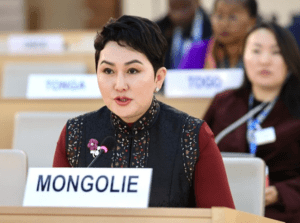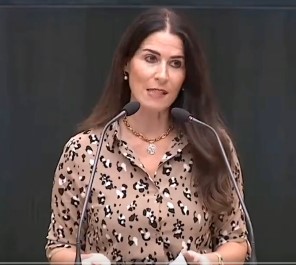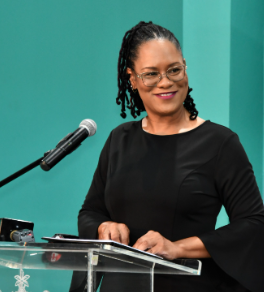Statements by Lawmakers
and Governmental Authorities
The International Council for Men and Boys has identified 12 disparities that affect men and boys around the world. Following are statements by lawmakers and governmental authorities from countries around the world that address many of these disparities:
World Health Organization – European Region:
- “In recent years, the health and well-being of men has received increasing attention in the WHO European Region. A key trigger for this attention is the high level of premature mortality among men, particularly in the eastern part of the Region….The adverse mortality among working age men has a profound demographic, economic, and political impact on the Region.” — World Health Organization, European Region, Announcing release of its Strategy on the Health and Well-Being of Men.
Argentina:
- “False reporting of gender violence will be punished under the new Penal Code. If this gender-based complaint caused harm to intra-family relations, for example, the father was unable to contact his minor children, this will be another aggravating factor.” — Justice Minister Cúneo Libarona
- False allegations against men are made “without consequences for lying, breaking the principle of equality before the law, of innocence and defense, destroying the ties of thousands of families, and mainly many parents who can’t see their children. A justice inclined to the ideologies that continue to destroy our country cannot continue to be an option, let us no longer be witnesses of injustice and remain complicit in the degradation of Argentine families.” — Victoria Villarruel, Vice President of Argentina
Australia:
- “We have a generation of lost boys… we can’t let them fall through the cracks.” — Kellie Sloane, Leader of the Opposition in New South Wales
- “We are blessed with men and boys who give so much to their families and communities, and I will always advocate for policies that recognise their worth and support their wellbeing.” — Maryka Groenewald, Member of Parliament for Western Australia
- “During 2018 Men’s Health Week, it is important to remember that in Australia, like most countries, males have poorer health outcomes on average than females. More males die at every stage of life. Males have more accidents, are more likely to take their own lives, and are more prone to lifestyle‑related chronic health conditions than women and girls at the same age.” — Greg Hunt MP, Health Minister
- “Almost half of Australian men are lonely and that men with high levels of loneliness are eight-and-a-half times more likely to have more poor mental health. Men account for six out of eight suicides, almost twice the number of deaths on our national road toll. And men face worst mental and physical health than women during a family breakdown.” — MP Sarah Game, South Australia, Leading proponent for an Office of Men’s Health.
- “Australian men and boys face challenges in their health and wellbeing. They die earlier than women – and more often from diseases that can be prevented. Aboriginal and Torres Strait Islander men in particular live significantly shorter lives than others.” — Hon. Greg Hunt, MP, Minister for Health, Releasing the National Men’s Health Strategy, 2020-2030.
- “In 2023, the war on young men and masculinity continues unabated. Promote the virtues of true masculinity, they being justice, prudence, temperance, and fortitude.” — Sen. Alex Antic, South Australia
- “Men on the tail end of broken relationships are at the end of their tether when they have limited or no access to their children as the result of the confusion, excessive costs and long delays that are a feature of the family law system in most of Australia. Many of these men are not able to cope and become further victims of this oppressive system by taking their own lives as a final solution to the unbearable processes of marital breakdown.” — Senator Malcolm Roberts, Queensland
- “If you listened to last night’s budget or you looked through the budget papers you might have noticed the considerable attention paid towards women, including many hundreds of millions of dollars allocated towards assisting female victims of domestic violence. However, what was overlooked was another aspect of domestic violence playing out in Australia. One which, like those who suffer from it, rarely gets the same sort of attention, violence against men.” — Senator Pauline Hanson, Queensland
Canada:
- “Suicide rates among men and boys are especially concerning. Men are three times more likely to die by suicide than women.” —Mark Holland, Minister of Health & Ya’ara Saks, Minister of Mental Health and Addictions
- “Unfortunately, many Canadian men are not achieving their optimal health. In fact, they live an average of four years less than Canadian women, and are more likely to be overweight or obese.” —Ginette Petitpas Taylor, Minister of Health
- “Men’s mental health is declining at an alarming rate, and too many, especially younger men, are facing these struggles on their own.” —Kenton Boston, President & CEO – CMHF
- “We know men face a variety of issues — abuse, mental health, legal pressures, parenting. These issues must be met with compassion and understanding.” — MP Karen Vecchio, Ontario, Welcome statement to Men and Families conference, September 26, 2024
- Men’s Health Week Proclamation — Mayor Peter Milobar, Kamloops, British Columbia
Denmark:
- “I am pleased that we are now paving the way to ensure that men exposed to violence have the same rights as women exposed to violence. For far too long we have not taken it seriously enough that men can also be victims of intimate partner violence and need help. The time has come to ensure that abused men and their children receive the same help as when a woman reaches out for help. Equality is for both women and men.” — Marie Bjerre, Danish Minister for Equality, announcing decision to assure equal support to male victims of domestic violence.
England:
- “Persistent underachievement among boys, particularly those from disadvantaged backgrounds, is a concern that should worry us all. Without targeted support, we risk leaving behind an entire generation of young men who disengage from education, leading to long-term consequences for both their futures and society at large.” — MP Wera Hobhouse
- “Every day, men across England are dying early from preventable causes. Men are hit harder by a range of conditions, while tragically, suicide is the leading cause of death for men under 50.” — Wes Streeting, Secretary of State for Health and Social Care
- “It can be hard to be a young man in today’s society, particularly for boys from backgrounds like mine. We’re seeing mental ill health on the rise, and the shocking fact that suicide is the biggest killer for men under the age of 50. Preventable killers like heart disease and prostate cancer are being caught far too late. Just as we are determined to end the injustices women face in healthcare, we won’t shy away from the need to focus on men’s health, too. This government will publish a men’s health strategy to tackle these problems head-on.” — Wes Streeting MP, Health Secretary
- On November 21, 2024 the UK House of Commons held a 90-minute debate with 16 Members of Parliament making statements on male suicide, prostate cancer, the important role of men’s sheds, and more. The group resolved “That this House has considered International Men’s Day, issues affecting boys’ and men’s health, wellbeing, and gender equality.”
- “Male survivors have unique needs, and we must ensure these needs are met. We know, for instance, there are harmful misconceptions and stereotypes, including around masculinity, that can act as barriers for male victims when it comes to reporting and seeking help.” — Victims’ Commissioner Baroness Newlove
- “Too little attention is paid to the problems faced by boys and young males. This partly explains school failure and growing prison numbers.” — MP Nick Fletcher, Don Valley
- “The Government should appoint a minister for men to champion men’s health and positive male role models.” — MP Katherine Fletcher, South Ribble, Lancashire
- “Can we look again at Equalities legislation? If the whole department is dedicated to ensuring women are considered — quite rightly so — why not the same for men? — MP Ben Bradley, Mansfield
- “Men in the most deprived areas in England live nearly 10 years fewer than those in the least deprived. It is clear working in partnership is the key to addressing men’s health – and councils are ideally placed to lead and foster that.” — Local Government Association, 2024.
India:
- “On the lines of National Commission for Women, a commission for men should be made, men should also get a platform. In the present time, we see incidents where men suffer at the hands of their wives. There should be no injustice with anyone.” — MP Shri Harinarayan Rajbhar, Ghosi
Ireland:
- “It is well-documented that women are more likely to seek access to counselling services than men, with women making up two thirds of all clients availing of our national counselling service. However, around 80% of all people who die by suicide are men. We need to make it easier for men to access help when they need it, and this initiative aims to do just that.” Mary Butler T.D., Minister for Mental Health
Kenya:
- “It would be very unfortunate if our boys are left behind even as the women and the girl child continue getting empowerment. Let everyone have an equal opportunity, including the men, since this is how successful families are developed for better communities and the nation at large.” — Cabinet Secretary for Public Service and Gender Professor Margaret Kobia
Micronesia:
- “Men in the Federated States of Micronesia have a shorter life expectancy than women (64 years vs.67 years), according to the FSM 2000 census.” — President Manny Mori
 Mongolia:
Mongolia:
- On December 11, 2023, Mongolian Minister of Foreign Affairs Battsetseg Batmunkh announced her government’s “She for He” initiative, designed to address the challenges faced by men and boys. —>
New Zealand:
- “Men’s Health Week is a good and timely reminder that no one should ever feel ashamed or afraid to reach out for support with their mental health challenges in their time of need. We know men are less likely to reach out for help and are overrepresented in New Zealand’s suicide statistics. This Government is working at pace to increase access to support so we can ensure when people are reaching out for support, they receive it when and where they need it.” Matt Doocey, Minister for Mental Health
Nigeria:
- “I commend Halima Layeni [of the Life After Abuse Foundation] for this visionary initiative …This initiative seeks to recognize the fathers who quietly and steadfastly support their families, showing unwavering commitment and resilience.” — Lagos Governor Babajide Olusola Sanwo-Olu
Norway:
- “Many boys and men do not feel that equality is about them, or exists for them. Greater attention to boys’ and men’s equality challenges will strengthen equality policy, not weaken it.” — Ministry of Culture and Equality, Men’s Committee Report. The report addresses a range of issues such as family life, education, working life, health, and violence.
Northern Mariana Islands:
- “I am very humbled to recognize the efforts of the Department of Public Health in taking a step to increasing awareness of men’s health needs. I admit that during stressful times, it is very easy to neglect our health.” — Governor Ralph DLG. Torres
South Africa:
- “Evidence shows that men participate less in preventive health services, seek medical help at a later stage than women and receive more informal care. There is also an understanding that the design of health services and the settings in which they are delivered are important factors influencing the way health systems respond to men’s health issues.” — Dr. ZL Mkhize, MP, Minister of Health, announcing release of the South African National Integrated Men’s Health Strategy, 2020-2025.
 Spain:
Spain:
- “False allegations exist. But they are not accounted for…The results are men with their lives destroyed, men whose right of honor is harmed, children of living fathers who are turned into orphans, and broken families…It could happen to you.” — Carla Toscano, Madrid City Hall Councilor, September 6, 2024
- “Feminism has normalized hatred, the violation of rights, and institutional abuse against men. And this must be denounced. For all good men.” — Carla Toscano, Madrid City Hall Councilor, September 24, 2024.
- Spain’s Gender Violence law “criminalizes 50% of the population,” that is men, for the mere fact of being male. — Deputy Rocío de Meer, March 3, 2025.
St. Kitts and Nevis:
- “Gentlemen, we must each become our own role models. The person you look up to, the person you strive to outdo, should not be anyone else but the man you see staring back at you in the mirror. Being a role model is about reflection, growth, and choosing, every day, to be better than the man you were yesterday.” —Dr. Marcus L. Natta, Cabinet Secretary, November 30, 2024, celebrating IMD
Trinidad and Tobago:
- “Let me assure you of something many of you are already aware of. The Gender Affairs Division recognises the vulnerability of our boys and men. The Government is committed to leaving no one behind and ensuring prosperity of all, men and boys, not just women and girls. We are concerned about men’s emotional health, mental health, academic prowess, economic struggles, relationship safety, and capacity to be constructive, contributing citizens.” — Minister Ayanna Webster-Roy
United States: Also see listing of statements by governors and state lawmakers.
- President Donald Trump (R):
- June 13, 2025: “For far too long, the health, happiness, and well-being of our Nation’s men have been neglected…This neglect has been compounded by a vicious campaign against masculinity…This war on manhood has left many American men in a state of loneliness, confusion, and emptiness.”
- Vice President JD Vance (R):
- February 22, 2025: “My message to young men is don’t allow this broken culture to send you a message that you’re a bad person because you’re a man, because you like to tell a joke, because you like to have a beer with your friends, or because you’re competitive.”
- Former President Barack Obama (D):
- July 16, 2025: “We rightly have tried to invest in girls to make sure that there’s a level playing field, and they’re not barred from opportunities. But we haven’t been as willing, I think, to be intentional about investing in the boys. And that’s been a mistake. And I think people are starting to recognize that. [But] I think there’s a healthier conversation taking place now, both among this new generation of young women and men, but also among the public at large that’s starting to see like, hey, we gotta do better by our boys.”
- Sen. Josh Hawley, Missouri (R):
- July 12, 2025: “Of all the things this country needs—stronger borders, better-paying jobs, some basic safety on our streets—above all, America needs stronger men. The left has spent decades running men down, blaming them for everything from climate change to ‘the patriarchy.’ They’re wrong. Strong men aren’t the problem. For America, stronger, better men are the solution.”
- Former Senator Marco Rubio
- “In 2022, there were seven million men in the prime of life missing from the labor force, and 10 million total without work. As the scholar Nicholas Eberstadt points out, this means the share of American men without work today is as large as it was during the Great Depression. Perhaps not coincidentally, four out of every five suicides last year were men. The individual stories are devastating, and the impact to our communities is immense.”
- Sen. Roger Marshall, Kansas (R):
- June 18, 2025: “As an OBGYN for more than 25 years, I know firsthand the challenges facing mothers, and how important a stable support system can be to both pediatric and maternal health outcomes. Fathers play such a critical role in their households, and I am proud to support legislation that champions their role as providers, spouses, and caregivers.”
- Sen. Raphael Warnock, Georgia (D):
- June 18, 2025: “Georgia’s maternal mortality rate is a crisis that we must address with every tool at our disposal. That includes redoubling our efforts to uplift the role of fathers in keeping their family healthy during pregnancy and early childhood. Now is the time to spread awareness about the critical role of fathers in improving maternal health outcomes and creating thriving families and communities.”
- Rep. Burgess Owens, Utah (R):
- June 15, 2025: “We know that when fathers are engaged, children thrive, succeed in school, stay out of trouble and build brighter futures. This Father’s Day, I’m proud to reintroduce this resolution to recognize the power and purpose of fatherhood, and to send a clear message: America is stronger when families are strong, fathers are present, and parents are empowered.”
- Rep. Byron Donalds, Florida (R):
- June 15, 2025: “A father’s impact is truly incalculable. It is fundamental for growth and development throughout a child’s life. Fathers are providers, protectors, teachers, mentors, role models, and so much more. Too many children across our country have been robbed of this lasting influence and we must do everything we can to end the tragic cycle of fatherlessness in America.”
- Rep. Rich McCormick, Georgia (R):
- May 1, 2025: “Men’s health is a critical issue that we must address head-on. As a physician and a Marine veteran, I understand the importance of prioritizing mental well-being and adopting a healthy lifestyle. Through the Men’s Health Caucus, we will work tirelessly to raise awareness, promote preventive care, and support legislation that improves the lives of men, boys, and their families across our nation.”
- Rep. Ted Lieu, California (D):
- May 1, 2025: “The disparities in men’s health—whether in life expectancy, disease detection, or mental health—are stark and demand serious attention. I am pleased to join colleagues on both sides of the aisle in promoting greater awareness, encouraging preventative care, and supporting initiatives that empower men to prioritize their health. Men’s health is not just a men’s issue—it’s a family issue, a workforce issue, and a national priority. Together, we can help ensure more men live longer, healthier lives.”
- Sen. Chris Murphy, Connecticut (D):
- August 11, 2024: “You’d be foolish to ignore the fact that men and boys are going through something right now that’s really troubling and really hard… This issue of what men are going through today is important and relevant, so I’m not afraid to talk about it.”
- Rep. Frederica Wilson, Florida (D):
- July 27, 2023: “The U.S. Commission on the Social Status of Black Men and Boys (CSSBMB) is the culmination of my work as U.S. Congresswoman to empower our Black men and boys.”
